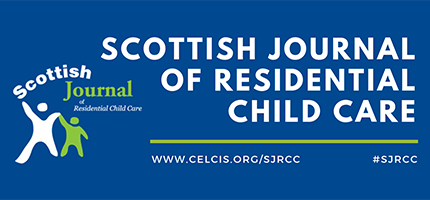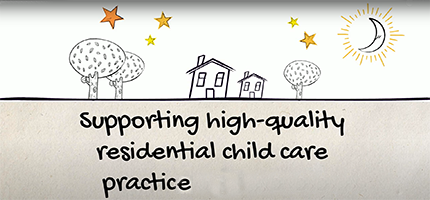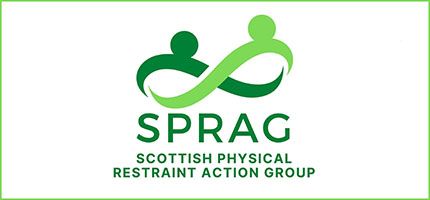
Residential Child Care in Scotland
All children have the right to grow up safe and cared for.
In Scotland, there are clear responsibilities and duties to ensure that every child can be supported and cared for whatever their circumstances, and to also protect children from any potential harm and neglect. Local authorities in Scotland must work with children, young people and their families to put in place the support that is needed. Where children’s welfare is safeguarded under the care of a local authority in Scotland, the legal phrase ‘looked after’ is used. There are many reasons why children and young people can become ‘looked after’ by their local authority, and when they are they may be ‘looked after’ at home with their family supported by the local authority, or cared for by foster carers, kinship carers who are family relatives or close family friends, or are cared for in places where children can stay supported by live in carers, or are supported in secure care to protect their wellbeing and safety.
Residential child care houses provide children and young people with a safe place to live, either together or without other children, away from their families. These homes are designed to provide care, accommodation, support, and sometimes, education, in nurturing environments, to meet the individual needs of each child. This type of care for children and young people is supported by a workforce of trained carers, who provide round-the-clock care.
The reason for a child or young person being cared for in residential child care and how long they will live there will be different for each child or young person and depends on their own individual needs. Around 11% of all children in care, or just under 1,300 children and young people are currently [latest statistics are for 2023] living in residential children’s homes in Scotland.
In Scotland, young people have the legal right to remain where they are living while in care until they reach the age of 21, only if this is right for them and what they want to do.
Relevant legislation
In Scotland there are key legal provisions in place to protect the rights, care, safety and wellbeing of all children and young people.
Two pieces of this legislation underpin the provision of children’s residential care in Scotland:
- The Children (Scotland) Act 1995, which is the legislative framework for all children’s services, with an emphasis on the care, wellbeing, and welfare of children in Scotland, and
- The Children and Young People(Scotland) Act 2014, which was introduced to strengthen support and children’s rights, including establishing in law roles and responsibilities of public authorities and bodies to be ‘Corporate Parents’ for children in care.
The decision for any child or young person to be cared for in residential child care is taken by a court in emergency circumstances, or otherwise through a Scotland’s Children’s Hearing System process.
Other relevant legislation includes the UNCRC (Incorporation) (Scotland) Act 2024, which provides important protection for the human rights of children and young people in Scotland This makes it unlawful for public authorities, including the Scottish Government, to act incompatibly with the requirements of the United Nations Convention on the Rights of the Child (UNCRC). The Children (Care and Justice) (Scotland) Act 2024 makes changes to the law relating to the care of children and the involvement of children in the criminal justice system.
In addition, in Scotland, young people have the legal right to remain where they are living while in care until the age of 21, if it is the right thing for them and this is what they want to do. This is called ‘Continuing Care’ and is enshrined in the Children and Young People (Scotland) Act 2014.
Frequently Asked Questions
When might children be cared for in residential child care?
Children are cared for in residential care when it has been assessed that this might best meet their needs and:
- their care is subject to a Compulsory Supervision Order decided by a Children’s Hearing
- there is a non-compulsory agreement made for their care between a local authority and their parents under Section 25 of the Children (Scotland) Act 1995
- it has been assessed that they are unable to return to the care of their parents and so a local authority holds a Permanence Order for their care.
All children being cared for by their local authority have the right to be consulted about what is happening to them and their needs, and their views should be taken seriously and included in a non-statutory, personalised Child’s Plan which is written for them and designed to help to identify and provide the right kind of help, when they need it.
The changing needs of children and young people in residential child care
The reason for a child or young person being cared for in residential child care and for how long they will live there will be different for each young person and depends on their individual needs.
Residential child care houses provide children and young people with a safe place to live, either together or without other children. They are designed to provide care, accommodation, support, and sometimes, education, in safe and nurturing environments, where the individual needs of each child can be met. These can be the right place for some children, who for whatever reason are unable to remain living at home with their families. Children and young people are cared for and supported by a workforce of professionals, who provide round-the-clock care.
Every child who goes to live in a residential house in Scotland will have their needs assessed and will have a personalised care plan developed which outlines their individual needs and goals and the support planned for them. This care plan is regularly reviewed and updated. Children, many of whom will have experienced trauma, will receive ongoing emotional support to help them to navigate their circumstances and to build positive relationships.
Where it is appropriate and safe to do so, maintaining relationships and meeting with family members will be supported as this is part of providing a stable and supportive environment for all children to thrive.
In Scotland, where possible children live in residential child care as close to their families as possible. This helps to maintain their family connections and supports children's emotional wellbeing. However, the availability of suitable homes for children to live and their specific needs can sometimes mean that they live further away from their family home.
The Care Inspectorate inspects all children’s care homes using the Health and Social Care Standards, which came into effect in April 2018. These Standards set out guidelines and expectations for everyone using health, social care or social work services in Scotland. Regardless of age or ability, everyone is entitled to the same high quality care and support.
The Scottish Government publishes annual statistics for all children who are ‘looked after’ in Scotland. The most recent statistics cover the period from 2022 –2023. On 31 July 2023, 12,206 children were ‘looked after’, with 1320 (11%) children living in residential child care settings, which included local authority homes, voluntary homes, residential schools, secure accommodation, crisis care and private/independent residential arrangements for children with complex needs.
Read more about the statistics








